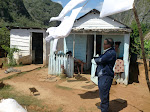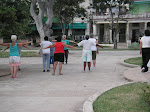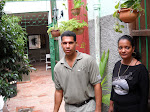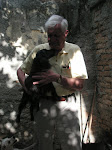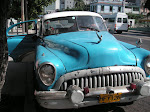Your Turn
Today I watched John Kerry speak as the US flag was raised
over our Embassy in Havana for the first time in 54 years. Most Cubans and most Americans feel it is
high time the two neighboring countries establish a normal relationship.
For years, Cubans have been told how the many problems in
Cuba are the result of the US embargo of Cuba, and they are expecting their
lives to get better when the embargo is lifted—something only Congress can
do. But as we wait for our torpid
legislators to end the embargo, the flag raising is seen as a harbinger of better
living conditions to come. Let's hope it
is that, and not a mirage that disappears if a reluctant US Congress fails to
act to kill the embargo.
The word Cubans use for the embargo is "bloqueo."
which really means "blockade," an act of war in typical usage. This connotes ships and planes forcibly
stopping the flow of goods to a given country.
The uses of these words are interesting in that the perpetrator of the
action (the US) chooses a milder word for its action, while the target of the
action chooses a word that connotes violence, blood, and aggression.
But semantics aside, there is no question the embargo has
had some hand in depressing the standard of living in Cuba. Cuba is a country where the average person
struggles to live. Yes I said
"live," not "live well." Visitors can look around and see
most buildings needing paint, stairways begging for handrail repairs, public
busses way beyond capacity with riders who have no other means of moving around
the city. Air conditioning is limited to
cooling the well to do. Tourist stores
sparkle with nice merchandise, but accept only CUCs, the Cuban convertible
currency—not the old Cuban Peso workers are paid in. And while there is a monthly ration of food,
it is never enough to last al month. To
eat, supermarkets don't exist, but if you have any money, you can shop at the
farmers' markets located in city neighborhoods.
Yes, life is tough for Cubans, but their hopes are high that
things will get better soon, now that the big modern building on the Malecon
overlooking the Florida Straits is once again a full-fledged embassy with a
real ambassador in residence. For the
last 54 years, that building has been just office space for a team of Swiss
diplomats paid to be looking out for American interests while the two countries
spent their energies trying to find ways to irritate each other.
OK, US Senators and Representatives, now it's your turn.
Les Inglis













